Scuba Diving Insurance
Introduction To Dive Accident, Equipment
and Travel Cost Protection
While we all love scuba diving, we know it has its risks. Scuba diving insurance is essential to protect you in case something goes wrong during your scuba diving vacation.
Hopefully none of us will ever need to use that insurance, but we certainly don't want to know what will happen if we do need it and don't have it.
Exactly what type of scuba diving insurance and how much insurance you will need depends upon what type of insurance you currently have.
While it is not fun, you will need to check your policy to see what is covered under your current plan. Some plans exclude coverage for "risky" sports such as scuba diving.
So before you purchase any extra divers insurance, review your primary health insurance coverage to determine whether you are covered or not.
Since
we are concerned with scuba diving travel insurance, see if your plan covers
hyperbaric treatment and emergency air evacuation. Both of these are
extremely expensive and you want to be covered for a worst case
scenario.

Scuba Diving Travel Insurance
If your current policy does not cover scuba diving, you should purchase a separate scuba diving travel insurance policy.
Many of these are supplemental (or secondary) policies that specifically cover scuba diving accidents. As a supplemental policy, it covers those expenses that your primary insurance policy does not cover.
There are many programs out there to choose from so you may want to shop around.
(I give you an outline and policy details of some of the more popular scuba diving insurance plans on my scuba dive insurance provider page.)
Personally, we use Divers Alert Network (DAN) which I outline on our insurance providers page. We have never had to use it (thank goodness!) so I don't have experience filing a claim with them. And I hope this never changes.
Another thing to consider is that some foreign countries want proof of payment (or even payment) before you are able to receive care and/or leave the country or hospital. Proof of a dive insurance plan can sometimes satisfy this requirement.
Some scuba diving insurance plans can even advance money in
certain cases.
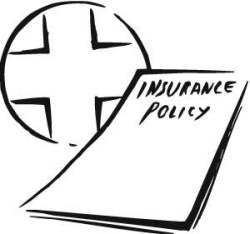
Dive Gear Insurance
Scuba diving equipment insurance is another major factor to consider when taking a scuba diving trip.
Gear is not cheap and if you have a full set of scuba equipment, it can easily cost over $1,000+ dollars. You want this investment protected in case of damage, theft, loss or other circumstance.
Several of the plans from the various dive insurance provider include some diving equipment insurance.
Scuba diving insurance is their specialty and they realize many divers take their own gear.
Check each policy to see how much coverage it offers. If insurance for scuba diving equipment isn't included, you can purchase a separate policy to meet your needs.
For instance, while DAN offers limited diving equipment insurance on some of their policies, it partners with another insurance company to offer equipment insurance.
Scuba diving is a great sport but cheap it is not!
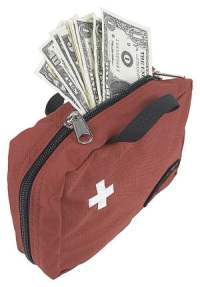
Which Dive Insurance Policy Is Right For You?
With all the scuba diving insurance programs to choose from, which is the best for you? Well, it depends. I know you don't like that, but unfortunately it is the truth.
It all depends on what type of insurance you currently have, what it covers, what type of diving you do, how much equipment you own, etc., etc., etc.
But when you do go looking for scuba diving travel insurance you should consider the following major factors to help make your choice easier:
- Emergency evacuation and chamber coverage
- Limits on lifetime maximum benefits vs. per occurrence benefits
- Depth limitations
- Covered accidents: scuba and non-scuba related
- Coverage for family members
- Equipment, travel interruption/cancellation insurance
Of course, there are other factors to consider when purchasing scuba diving travel insurance, but if you consider the above factors you should be in good shape. And most of all - let's hope we never have to use it!
Continue on to Part II - Dive Insurance Providers and Plans
Want to stay down longer and improve your buoyancy control and other diving skills? Our free report "Increase Your Bottom Time" along with our practical, weekly actionable tips will have you looking like a seasoned diver in no time. So come join us and see improvement on your very next dive!
(Click on the photo to join us now!)
What's New
-
Unofficially Summer
May 25, 24 07:19 AM
Well it is finally here. Memorial Day weekend and the unofficial start of summer! Wishing everyone a happy and healthy holiday weekend. Hopefully the weather cooperates wherever you are and you will b… -
Happy New Year
Jan 01, 24 06:00 AM
Happy New Year everyone! I hope everyone is well and had a fun New Years Eve! May your new year be filled with lots of wonderful dives. All the best to you and yours in 2024! Let the dives begin. -
Happy Holidays
Dec 14, 23 05:05 AM
I hope everyone is enjoying the holiday season! I am always amazed at how fast time flies and another year is just around the corner. I wanted to pop in and say hi to everyone. I am doing some full ti… -
3 Common Scuba Diving Mistakes New Divers Make
Feb 23, 23 02:18 PM
In this video, I share 3 common scuba diving mistakes beginner divers make. Learn how to correct these for a better - and safer - dive. -
Scuba Diving Tipping Etiquette: How Much And When To Tip Scuba Crew
Feb 06, 23 03:34 PM
Not sure of scuba diving tipping etiquette? In this video I share who to tip, when to tip, how much to tip, tipping on liveaboards, tipping an instructor & more



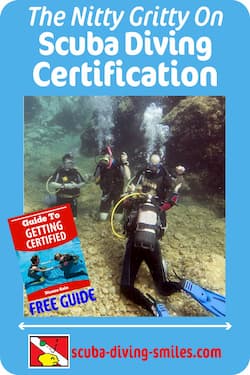



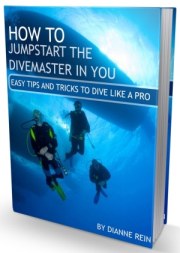

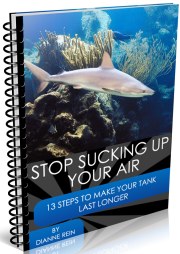
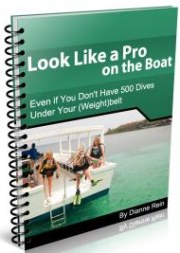

New! Comments
Have your say about what you just read! Leave me a comment in the box below.